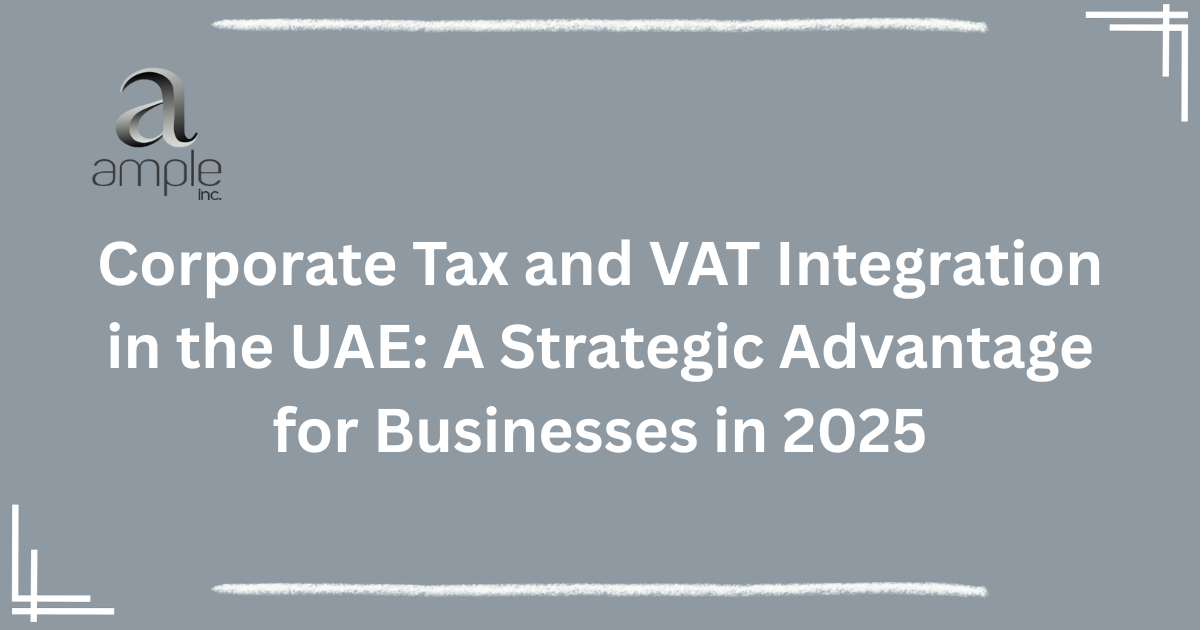Group Relief and Restructuring Relief in the UAE Corporate Tax Regime
The United Arab Emirates (UAE) has introduced several tax reforms aimed at enhancing its corporate tax structure and attracting global business investments. As part of these reforms, the UAE has implemented provisions related to Group Relief and Restructuring Relief in the corporate tax regime. These provisions allow businesses within a group to offset corporate tax liabilities and benefit from corporate tax exemptions during corporate restructuring, enabling more flexibility in managing their tax obligations.
In this article, we will explore what Group Relief and Restructuring Relief entail, how they work, and their significance in the UAE’s evolving corporate tax landscape. Understanding these provisions is essential for businesses looking to optimize their corporate tax position, especially in the context of restructuring and managing group-wide tax efficiency.

What is Group Relief?
Group Relief is a valuable corporate tax provision that allows companies within the same corporate group to offset their taxable income against losses incurred by other companies within the same group. This system is specifically designed to ease the tax burden on corporate groups by providing flexibility in how corporate taxes are managed across multiple entities.
In the UAE, Group Relief allows businesses that meet certain conditions to transfer tax losses from one company to another within the group. By consolidating corporate tax liabilities and leveraging the losses of underperforming entities, businesses can effectively reduce their overall corporate tax exposure, resulting in significant savings for the group as a whole.
Key Features of Group Relief:
- Eligibility Criteria: For businesses to qualify for Group Relief, they must meet specific conditions, including being part of the same corporate group. A corporate group typically refers to a group of companies that are directly or indirectly controlled by a parent company. The parent company and its subsidiaries must meet the UAE tax authority’s requirements for consolidation. This ensures that only businesses with sufficient ownership and control relationships can benefit from the Group Relief provision.
- Offsetting Losses: Group Relief allows companies within the same group to offset profits and losses against one another, which can reduce the overall corporate tax burden. For example, if one subsidiary incurs a loss, it can offset that loss against the profits of another subsidiary within the same corporate group. This effectively reduces the taxable income of the entire group, providing potential tax savings. The ability to offset losses against profits can be especially beneficial for companies with fluctuating earnings, as it allows them to better manage their overall corporate tax position.
- Tax Efficiency: Group Relief significantly increases the overall tax efficiency of the corporate group. By allowing the group to utilize carried-forward tax losses and optimize the allocation of tax deductions, businesses can reduce their overall corporate tax liability. This can be particularly beneficial for groups with subsidiaries that have varying levels of profitability. The ability to balance losses with profits within the same group enables businesses to enhance their corporate tax planning and forecasting.
- Tax Transparency: Group Relief also promotes tax transparency by simplifying the tax obligations for corporate groups. With this provision, companies within a group can file a consolidated corporate tax return, making it easier for the UAE tax authority to assess the group’s overall tax position. Consolidation reduces the complexity of managing separate tax returns for each entity, streamlining the compliance process and ensuring that the group complies with UAE corporate tax laws.
Benefits of Group Relief for Corporate Tax Groups
The introduction of Group Relief in the UAE’s corporate tax regime offers several benefits for corporate groups operating in the region:
- Reduced Tax Burden: By enabling the offsetting of losses across subsidiaries, Group Relief helps companies lower their overall corporate tax burden, improving cash flow and profitability.
- Increased Flexibility: Corporate groups gain flexibility in how they manage corporate taxes within the group. This enables more strategic planning and operational restructuring, especially for businesses with subsidiaries in different sectors or regions.
- Improved Corporate Tax Planning: With Group Relief, businesses can better plan their corporate tax strategy, ensuring that profits and losses are optimized for the best possible tax outcome across the group.
- Simplified Compliance: Consolidating the tax returns of all group companies into one filing simplifies compliance, reducing administrative costs and potential errors in tax filings. This makes it easier for businesses to adhere to the UAE’s corporate tax regulations.
What is Restructuring Relief?
Restructuring Relief refers to the tax relief provided to businesses undergoing a corporate restructuring process. The UAE corporate tax regime allows companies to reorganize their operations without triggering immediate tax liabilities, provided certain conditions are met. This relief is designed to facilitate mergers, acquisitions, and other forms of corporate restructuring, enabling businesses to undergo changes without incurring additional corporate tax burdens.
The introduction of Restructuring Relief aims to promote growth and operational efficiency within the UAE’s business environment, encouraging businesses to restructure for strategic reasons rather than worrying about the immediate tax consequences. By allowing restructuring activities to be conducted in a tax-neutral environment, businesses can focus on maximizing their potential without being weighed down by unexpected tax costs.
Key Features of Restructuring Relief:
- Eligibility for Restructuring Relief: To qualify for Restructuring Relief, the restructuring must meet specific criteria. The restructuring process must be part of a reorganization plan that does not lead to the immediate recognition of capital gains, losses, or other tax liabilities. The restructuring should be carried out for legitimate business purposes and should not be motivated solely by tax avoidance. This ensures that businesses restructure to enhance operational efficiency, streamline their processes, or pursue strategic mergers and acquisitions, rather than to evade taxes.
- Tax Neutrality: One of the core principles of Restructuring Relief is that it enables businesses to restructure their operations in a tax-neutral environment. This means that when assets or liabilities are transferred between group companies during a corporate restructuring, the transfer is not immediately subject to corporate tax. Instead, the tax implications are deferred until the assets or shares are sold or otherwise disposed of in the future. This deferral helps companies avoid immediate tax liabilities, allowing them to focus on the restructuring process without the fear of triggering capital gains taxes or other penalties.
- Facilitating Mergers and Acquisitions: The UAE’s Restructuring Relief significantly facilitates mergers and acquisitions (M&A) by reducing the corporate tax burden on transactions such as asset transfers and share acquisitions. These transactions are often central to corporate restructuring, and the ability to conduct them without immediate tax consequences can make businesses more likely to pursue M&A activities. This leads to greater strategic flexibility and can drive growth, operational efficiency, and market expansion. Restructuring Relief thus encourages businesses to make decisions based on long-term growth rather than short-term tax concerns.
- Preserving Tax Benefits: During a corporate restructuring, businesses may have existing tax losses, credits, or deductions that could otherwise be lost in the process. Restructuring Relief ensures that these tax benefits are preserved, allowing businesses to maintain their corporate tax advantages even after undergoing restructuring. This can be a significant benefit for companies with accumulated tax losses, as they can continue to carry these losses forward to offset future taxable profits, ensuring that the restructuring does not result in the forfeiture of valuable tax benefits.
The Benefits of Restructuring Relief for Businesses
- Avoid Immediate Tax Liabilities: The ability to defer corporate tax liabilities during a corporate restructuring allows businesses to implement strategic changes without the immediate impact of taxes.
- Encourages Mergers and Acquisitions: By facilitating M&A activities without triggering taxes on asset transfers, Restructuring Relief fosters growth opportunities through acquisitions and mergers.
- Tax Optimization: Businesses can preserve existing tax losses, credits, and other benefits, allowing for more efficient corporate tax management post-restructuring.
- Strategic Flexibility: The tax-neutral environment offered by Restructuring Relief provides businesses with the flexibility to restructure in a way that best supports their long-term growth objectives.
How Restructuring Relief Supports Business Growth in the UAE
The UAE’s corporate tax regime, including Restructuring Relief, plays a crucial role in supporting business growth and facilitating corporate transformations. By reducing the tax impact of restructuring activities, the UAE ensures that businesses can restructure their operations in the most efficient way possible, without being hindered by unnecessary tax barriers. Whether it’s streamlining operations, pursuing mergers, or acquiring new assets, Restructuring Relief helps businesses navigate corporate changes with greater ease, positioning them for success in an ever-evolving marketplace.
The Benefits of Group Relief and Restructuring Relief under the UAE Corporate Tax Regime
The introduction of Group Relief and Restructuring Relief under the UAE corporate tax regime provides several benefits for businesses operating in the UAE. These provisions are designed to simplify tax compliance and enhance the financial flexibility of businesses, enabling them to optimize their tax positions. Let’s explore how these benefits can support growth and operational efficiency:
1. Enhanced Financial Flexibility
Both Group Relief and Restructuring Relief allow companies to manage their tax obligations more efficiently. Businesses can reduce tax liabilities, offset losses, and preserve tax benefits during corporate reorganizations, which increases overall financial flexibility. By leveraging these provisions, companies can reallocate resources more effectively and maximize their growth potential. This increased flexibility is essential for businesses in a competitive and dynamic environment like the UAE.
For more information on UAE’s corporate tax framework, visit the UAE Federal Tax Authority.
2. Encouraging Corporate Restructuring
The ability to restructure without triggering immediate tax liabilities encourages businesses to realign their operations for greater efficiency. This could involve mergers, acquisitions, or the disposal of non-core assets, all of which can help businesses improve their operational focus and profitability. Corporate restructuring is often a critical step for businesses looking to streamline their operations or adapt to changing market conditions.
Restructuring Relief simplifies this process, making the UAE an attractive destination for businesses seeking to optimize their structures. This provision enables companies to make strategic adjustments without facing the burden of unforeseen tax penalties.
For more details on mergers and acquisitions under the UAE corporate tax regime, check out the OECD’s guidelines.
3. Attracting Global Investment
The UAE’s corporate tax regime, with provisions like Group Relief and Restructuring Relief, offers an attractive environment for foreign investors. By providing tax relief during corporate restructuring, the UAE positions itself as a competitive jurisdiction for cross-border M&A activity and global investment.
International investors are often wary of high tax implications when investing in new markets. However, the flexibility provided by these tax provisions reduces the financial risk associated with corporate restructuring. This makes the UAE an increasingly popular location for global business operations.
For more information on how the UAE attracts international investors, visit Ample Inc..
4. Simplifying Corporate Tax Compliance
Group Relief and Restructuring Relief simplify corporate tax compliance for businesses operating in the UAE. By enabling companies to offset losses and transfer assets without triggering tax liabilities, businesses can focus on growth and expansion rather than managing complex tax implications. This streamlined approach to compliance not only reduces administrative burden but also enhances operational efficiency.
Businesses operating in the UAE benefit from a corporate tax environment that prioritizes ease of doing business, allowing them to focus on what matters most: long-term growth and market competitiveness.
For further reading on simplifying corporate tax processes, check the UAE Federal Tax Authority’s Resources.
Conclusion
The introduction of Group Relief and Restructuring Relief within the UAE’s corporate tax regime marks an important development for businesses operating in the region. These provisions offer significant flexibility in managing tax obligations, facilitating corporate restructuring, and driving operational efficiency. By enabling companies to offset losses, defer tax liabilities, and restructure without immediate tax consequences, the UAE is positioning itself as a tax-efficient hub for businesses and investors.
For businesses in the UAE, understanding how Group Relief and Restructuring Relief work and how to leverage these provisions effectively is crucial for optimizing their tax position. These reliefs not only ease the burden of corporate restructuring but also contribute to improved financial flexibility and better strategic decision-making.
Consulting with tax experts or advisors is highly recommended to ensure that businesses are fully compliant with the UAE tax regime while maximizing the benefits of these tax relief provisions. These experts can provide invaluable insights into the most effective strategies for restructuring, tax planning, and overall financial management within the evolving UAE corporate tax framework.
For more details on corporate tax compliance in the UAE, consult the UAE Federal Tax Authority or visit Ample Inc. for expert guidance on optimizing your corporate tax strategies.
By understanding and utilizing these provisions, businesses can ensure long-term success and remain competitive in the UAE’s dynamic business environment.



